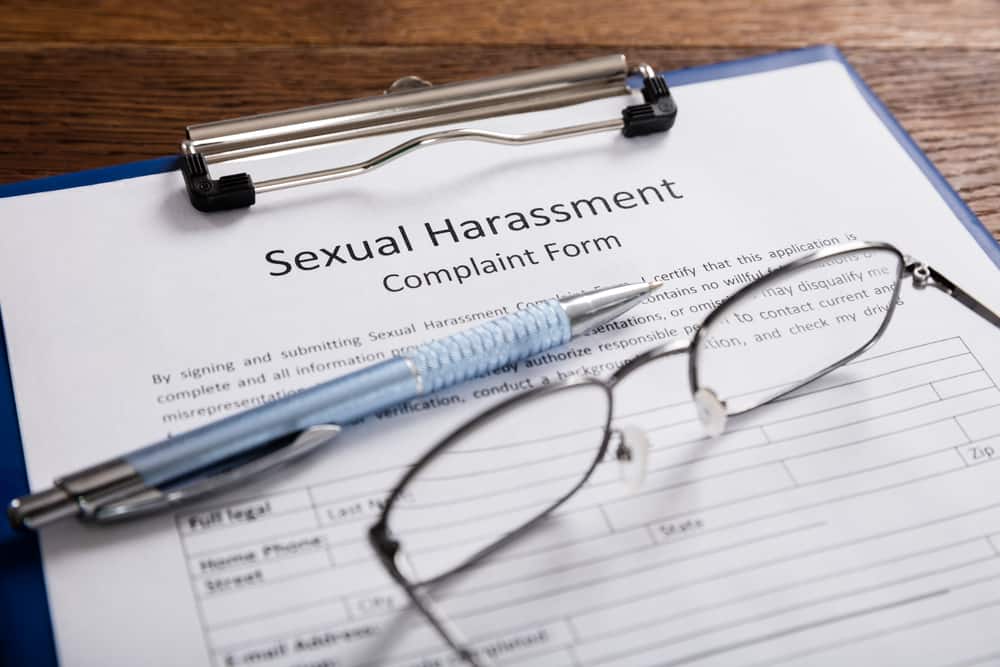Workplace sexual harassment is a serious issue because it has detrimental effects on the well-being of the harassed person, and these spill over to the rest of the employees. Productivity decreases, and there are increases in nonattendance and employee turnover.
There is more to a sexual harassment case than just the sex, and it entails hostility or abuse of power. Sexual harassment does not only entail issues between different sexes. There are also cases between people of the same sex, bisexuals, and transgender individuals. In most sexual harassment cases, the victim is a woman, and the harasser is a man, but there are also cases where men are victims.

Signs of Sexual Harassment
According to the Advocacy Center for Employment Law, employees are often scared to voice their concerns, forcing them to look the other way. However, condoning or ignoring the behavior is wrong, and employees should turn to a labor attorney for help.
They say that signs are not always apparent, and a person may not realize they are being harassed. The most evident signs include promises of promotion or a raise in exchange for sexual favors and hints of a demotion or displacement if these are not forthcoming – known as quid pro quo in legal terms.
Other forms of sexual harassment include inappropriate language or images in messages or emails, inoffensive material placed in the office, and offensive remarks ( even if not of a sexual nature but aimed at someone specifically).
There are cases where the perpetrator is not someone from within the company but a non-employee like a client, vendor, customer, etc. Finally, even if the sexual harassment is not directed at one person but makes for a very hostile work environment, employees may still file a claim.
Preparing For the Sexual Harassment Case
When preparing for a workplace sexual harassment case, you can’t do it alone. Reporting it to someone within the company is also essential, and you need to make sure your employer receives it. The report must be in writing, and you should keep a copy of it.
The services of an employment lawyer experienced in this field of law are vital. Gather all the relevant information to your case and draw up a list of questions you may want to ask during the consultation.
Tackle the issue by following your employer’s policies on filing a claim for your sexual harassment claim. Starting it while in the workplace may not feel right, but if the harassment is ongoing, it will help your case.
The more evidence you can gather, the faster it is for a lawyer to build up a case. So collect any emails, text messages, emails, and even recordings for the lawyer to evaluate.
Don’t be nervous to ask questions about your options, how the case will affect your employment, what other behavior you need to provide proof of, and anything else that comes to mind.
Things to Avoid While Preparing
When you have someone helping you, it is much easier to tackle workplace sexual harassment, so don’t do it without a lawyer. Legal advisers also say that it is wrong to retaliate. Instead, trust the process followed by your lawyer for the best outcome.
Finally, you have every right to remove yourself from the harasser by declining to give in to their demands. Let them know their behavior is offensive to you.
Preventing Workplace Sexual Harassment
Employers are responsible for preventing workplace sexual harassment by explaining what it constitutes and how the company deals with it.
Employers must provide policies and procedures to prevent workplace sexual harassment. These rules must be shared with employees, monitored, and enforced. In addition, the company must make it easy for all employees to report this type of harassment.
Once you report an incident, the company must promptly investigate your reports of workplace sexual harassment thoroughly, take measures to stop it effectively, and ensure it never happens again.
Firing or changing your job to ensure you are separated from your harasser are not acceptable solutions to the problem. Instead, you should refuse any material changes to your career or remuneration. In legal terms, these are known as “adverse employment actions.”
Final Take
Preparing for a sexual harassment case can be daunting, but you don’t have time to lose. The faster the issue is dispensed with, the better for your sexual harassment case. During this time of emotional distress, you will feel that your confidential details will become visible to your harasser. Still, the damages are substantial if you win, including mental anguish, medical expenses, lost wages, and any other out-of-pocket expenses. Punitive damages are also paid in some cases.



